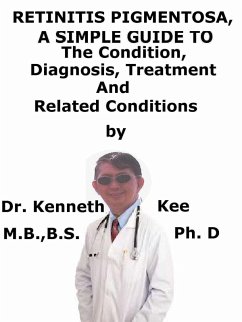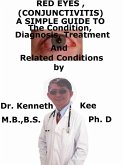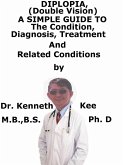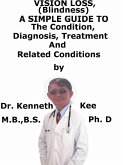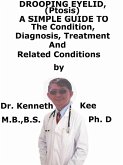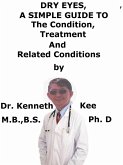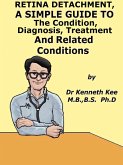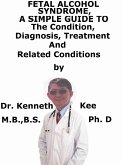Who is affected by Retinitis pigmentosa?
Retinitis pigmentosa is believed to be a genetically determined disease in which the abnormal photoreceptors or the retinitis pigment in the epithelium of the retina result in progressive loss of vision.
Initially there is night blindness due to the abnormal photreceptors (rods first, followed by cones).
This is followed by the loss of peripheral visual field known as tunnel vision which may presist for some years.
Finally the macular region is affected with loss of central vision in the later stages.
In rare cases blindness may occur in childhood.
It is a rare condition causing loss of vision.
What are the causes of Retinitis pigmentosa?
1. Genetic
There is a family history of Retinitis pigmentosa
The cause is usually in the genes and of the recessive trait.
There is a mild form of dominant trait.
Rarely it is sex linked and can be severe.
2. Degeneration
Degeneration of the retina affects the rods and cones starting with equatorial areas and then the macular region in later stages.
What are symptoms and signs of Retinitis pigmentosa?
Symptoms:
1. Loss of night vision starting in childhood.
The visual fields develop concertive contraction leading to central tubular vision.
2. Tunnel vision occurs at age of 40-50 for several years or decades
3. Loss of central vision usually at 50-60 years of age
Signs:
1. In early stage, direct opthalmoscopy show small spidery black spots in affected retina
2. Vessels are sheathed with pigments in some areas
3. Retinal vessels become attenuated (thinned)
4. Optic atrophy(cellophane maculopathy) sets in
5. Posterior subcapsular cataracts form at late stage.
6. There is associated myopia and deafness.
How is Retinitis pigmentosa diagnosed?
1. Examination of the retina by ophthalmoscopy after the pupils have been dilated may show the presence of dark pigments in the retina
2. Electroretinography (ERG) shows progressive loss of photoreceptor function
3. Visual field testing shows loss of peripheral vision
4. Fluorescein angiography shows dark pigments which establish the presence of Retinitis pigmentosa.
5. Intraocular pressure may be increased
6. Measurement of the electrical activity in the retina (electroretinogram)
7. Refraction test
8. Side vision test (visual field test) peripheral vision is affected and tunnel vision may be present especially in the older patients
9. Slit lamp examination may show the presence of dark pigments in the retina
10. Visual acuity testing visual acuity may not be affected in the central area
Retinitis pigmentosa can be secondary to inflammatory disease occuring in the late stages.
What is the complication of Retinitis pigmentosa?
There is partial to complete loss of vision.
What is the treatment for Retinitis pigmentosa?
Retinitis pigmentosa has no cure.
Wearing sun glasses may help to protect the eyes from the sun.
High daily intake of 15000 IU of vitamin A palmitate may slow the disease but can cause damage to the liver.
Microchip implants into the retina can help to act as a microscopic video camera.
These artificial retinal implants are useful for treating blindness associated with Retinitis pigmentosa.
New treatments for retinitis pigmentosa include the use of DHA, which is an omega-3 fatty acid.
Gene therapy in the affected retinal cells may help in the future.
The use of stem cells to rejuvenate the retina cells is under investigation.
TABLE OF CONTENT...
Dieser Download kann aus rechtlichen Gründen nur mit Rechnungsadresse in A, B, CY, CZ, D, DK, EW, E, FIN, F, GR, H, IRL, I, LT, L, LR, M, NL, PL, P, R, S, SLO, SK ausgeliefert werden.

